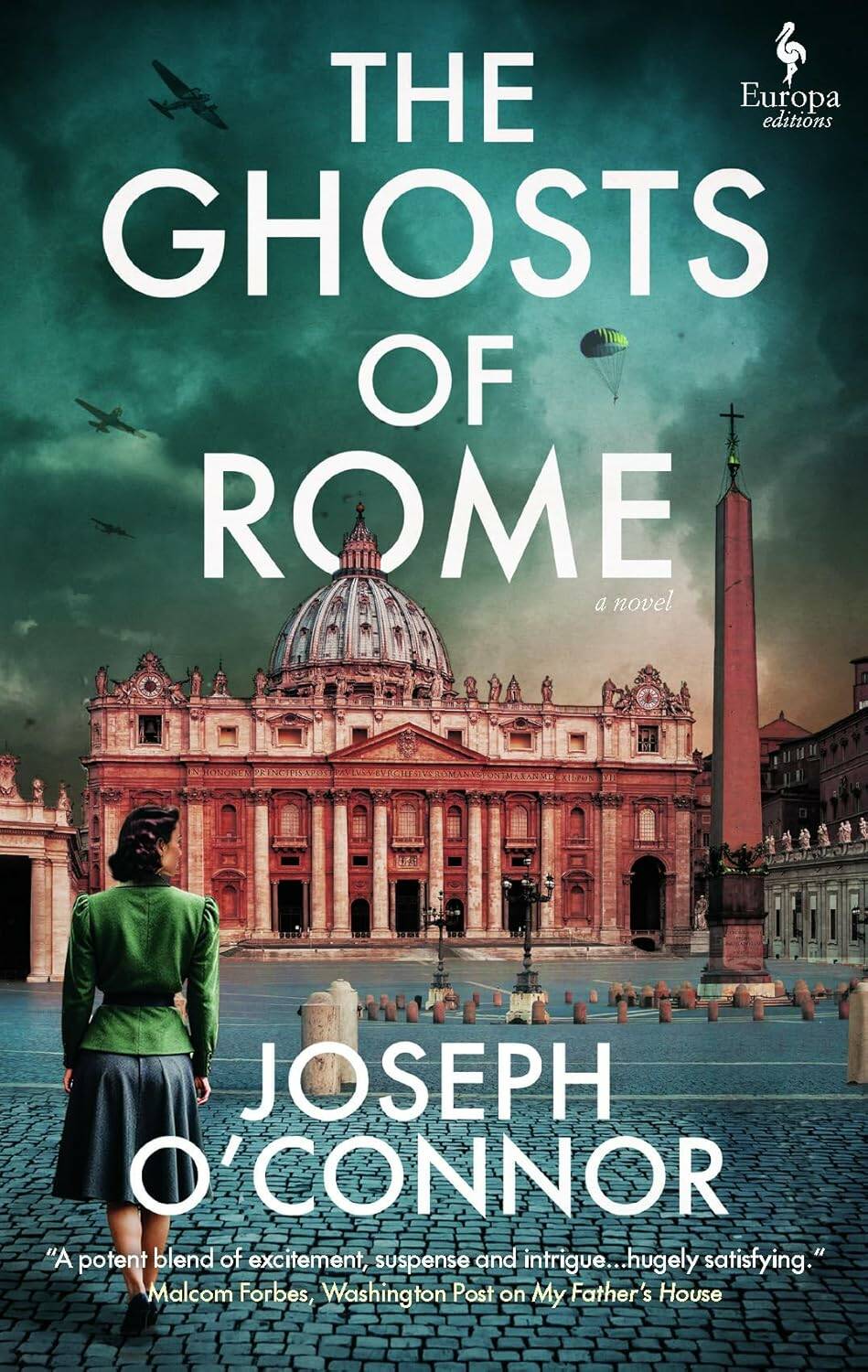Morality, courage at core of wartime novel
Advertisement
Read this article for free:
or
Already have an account? Log in here »
To continue reading, please subscribe:
Monthly Digital Subscription
$0 for the first 4 weeks*
- Enjoy unlimited reading on winnipegfreepress.com
- Read the E-Edition, our digital replica newspaper
- Access News Break, our award-winning app
- Play interactive puzzles
*No charge for 4 weeks then price increases to the regular rate of $19.95 plus GST every four weeks. Offer available to new and qualified returning subscribers only. Cancel any time.
Monthly Digital Subscription
$4.99/week*
- Enjoy unlimited reading on winnipegfreepress.com
- Read the E-Edition, our digital replica newspaper
- Access News Break, our award-winning app
- Play interactive puzzles
*Billed as $19.95 plus GST every four weeks. Cancel any time.
To continue reading, please subscribe:
Add Free Press access to your Brandon Sun subscription for only an additional
$1 for the first 4 weeks*
*Your next subscription payment will increase by $1.00 and you will be charged $16.99 plus GST for four weeks. After four weeks, your payment will increase to $23.99 plus GST every four weeks.
Read unlimited articles for free today:
or
Already have an account? Log in here »
Hey there, time traveller!
This article was published 01/03/2025 (314 days ago), so information in it may no longer be current.
The choir is singing again.
It’s essentially the same group readers met in Irish novelist Joseph O’Connor’s first book My Father’s House, but characters are developed in more depth in The Ghosts of Rome, O’Connor’s second book of hazardous adventures of a small group running an escape line under the direction of Monsignor Hugh O’Flaherty.
It is a captivating study of human morality and courage under inhuman levels of stress. This small group of daring rescuers used the activities of a choir to cover their real work — smuggling escaped Allied prisoners out of Nazi-occupied Rome.

The Ghosts of Rome
One of the principal characters is Contessa Giovanni Landini, a 34-year-old wealthy widow who volunteered as a Red Cross motorcycle driver at the outbreak of the war. The contessa matches wits and wills with the vile Paul Hauptmann, who runs the Gestapo in Rome and has been assigned responsibility for destroying the entire escape line. He doesn’t dare risk failure, as his wife and children are under Gestapo lock and key in Berlin.
The contessa earned a reputation as a reckless, audacious and magnetic member of the Italian resistance. “She is said to drift around St. Peter’s Square, every morning, nine to noon, a woman in her 30s, wears a long black coat and black lace mantilla. Make your way to the contessa, she’ll get you hidden, fed and watered,” O’Connor writes.
O’Flaherty is frequently at odds with the Vatican establishment, which is often more concerned with preserving Church bric-a-brac and relics than it is in caring for its people. But the way O’Flaherty saw the world:
“God has no passport
“God has no flag
“God has no country.
“God is God.”
One Friday night, bored escapees plan a party. When the contessa goes to lay down the law against this dangerous activity, she’s caught in an American bombing raid and comes across a badly wounded Polish airman. She drags him to a safe house, setting off a flurry of objection within the choir and the resistance.
O’Connor’s staccato writing style moves the story along at a good clip, like a series of images flashing under a strobe light.
And there is the occasional wry observation.
From Delia Kiernan, for example, mother of 19-year-old Blond:
“You think fighting fascism is difficult?
Try being a mother.
Parent of someone in their teens?…
Unlike all people aged 19, you’d no principles or conscience; if you had, you were a coward and simply wouldn’t live by them.”
Delia notes that life is hard in Rome in early 1944: bombs, starvation, people disappearing in a finger-snap.
And there are rumours of a special virus, Nazi-itis. Delia dismisses this as the symptoms were those of starvation and anxiousness, “nothing more,” but “in the choir we had a virus all our own. We were sick of the sight of each other.”
Not surprising, with six people living in three tiny rooms and a kitchenette.
Hauptmann is a sadistic butcher in his job as Gestapo chief, but he sees himself as a loving and devoted father and husband. Just disregard the fact that the gifts he showers on his wife were stolen.
As the story winds down, the scene shifts to Ireland for O’Flaherty’s memorial mass. The solemnity of the occasion is relieved with a little note of humour from the chauffeur. “If you’re driving the hearse and you talk over your shoulder, you don’t want to hear talking back.”
O’Connor has crafted a historical suspense novel brimming with unforgettable personalities, illuminating human character and relationships forged in the horrors of war.
Settle into a cozy chair with a good cup of tea, let your mind wander directly into the action and ask yourself how you would respond to similar challenges.
Gordon Arnold is a Winnipeg author.

